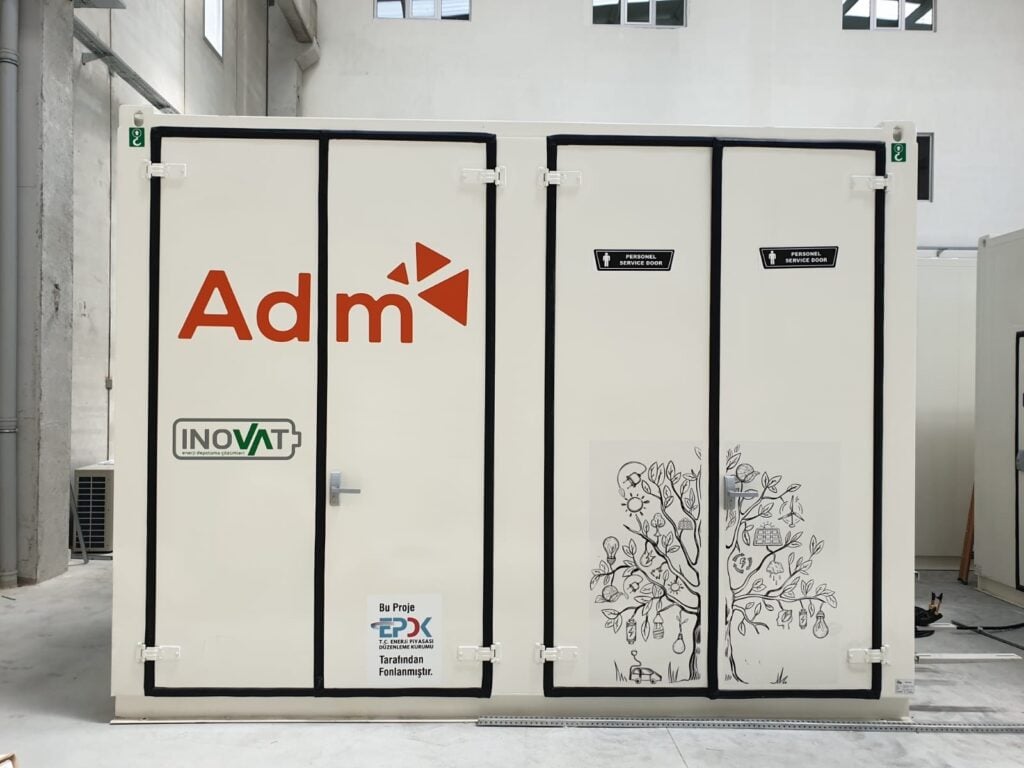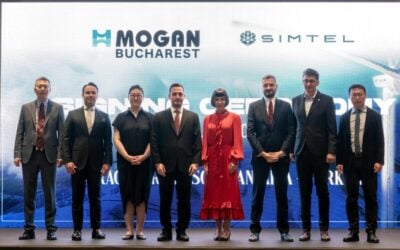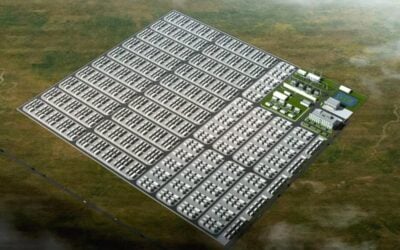
With interest shown by developers in Turkey to deploy energy storage, Energy-Storage.news Premium hears how LFP import duties could encourage domestic supply chains to help meet demand.
What was claimed to be Turkey’s first battery storage system for the grid was commissioned in 2021. At the time, Karim Wazni, then-managing director of Aggreko Microgrid and Storage Solutions which delivered the project, said it was an exciting development that could help prove the business case for energy storage in the country.
Enjoy 12 months of exclusive analysis
- Regular insight and analysis of the industry’s biggest developments
- In-depth interviews with the industry’s leading figures
- Annual digital subscription to the PV Tech Power journal
- Discounts on Solar Media’s portfolio of events, in-person and virtual
Almost a year later in April 2022, Energy-Storage.news heard that big steps taken by regulators in the intervening period would likely accelerate the market’s development, from Can Tokcan, managing partner at Turkish energy storage system integrator, manufacturer and EPC company iNOVAT.
Those steps taken by the Energy Market Regulatory Authority (EMRA) included allowing energy companies to be licensed to develop energy storage facilities as both standalone resources and in integration with generation or consumption.
The next major step taken after that was that EMRA began pre-licensing of energy storage facilities paired with renewables and by April last year had received more than 200GW of applications, with an expectation that about 20GW would be granted within three years.
Last week, Energy-Storage.news reported on the latest development in that wave of pre-licensing: 25.6GW of bids have been pre-licensed across 492 project applications. Under the licensing rules, developers can deploy energy storage at wind or solar PV plants in a 1:1 megawatt ratio.
LFP manufacturers will eye export as well as domestic opportunities
While that’s “very positive” for the industry, Can Tokcan said, speaking to Energy-Storage.news last week, the iNOVAT managing partner was keen to share his thoughts on another aspect of Turkish energy storage market development which is further upstream.
Lithium iron phosphate (LFP) battery products which are imported into Turkey will be taxed at a 30% rate and the high rate of import duty applies to “not just modules, but cells, modules and systems”, Tokcan said.
INOVAT, as a manufacturer of energy storage systems – including its own in-house developed energy management system (EMS) technology – welcomed the move and Tokcan said it would contribute positively to the development of the domestic market.
“Local capabilities will be improved by this additional tax, I think, because there will be more local companies working on manufacturing cells. There are some manufacturers already, although it’s not very large scale.”
Indeed, while Turkey doesn’t have a lot of storage systems yet – as of 2022 Tokcan estimated it was still less than 2MW – it does already have some battery manufacturing capabilities and it has moved early to adopt lithium iron phosphate, which is increasingly being used for grid-scale battery energy storage system (BESS) projects as well as in shorter range electric vehicles (EVs).
Engineering company Kontrolmatik started production at an LFP factory in the capital Ankara at the end of 2022, through its BESS subsidiary Pomega Energy Storage. It produces cells, packs, modules and complete turnkey systems. While it is fairly small, with an initial annual production capacity of 350MWh ramping to 1GWh, it still marks an early example of LFP production moving outside of China.
Pomega Energy Storage subsequently also became one of the first to announce US-made LFP product lines too. It is currently building a factory in South Carolina, expected to open this year.

The company pre-empted the Inflation Reduction Act’s passing and had already committed to the project, but the Biden-Harris Administration’s legislation drove Pomega to expand its planned gigafactory from 2GWh annual production to 3GWh.
iNOVAT’s Can Tokcan said that although there will likely be a healthy market for storage within Turkey, Turkish companies will look to do significant volumes of business in the rest of the world too, with one example being the Central and Eastern European (CEE) region. iNOVAT recently made its first-ever export of BESS containers to Hungary, which Tokcan claimed is the first BESS export from Turkey anywhere.
‘Tax on whole value chain’
With China as the prime mover in LFP production, the new duties will largely be levied on Chinese-made products. They will not apply to European Union (EU)-made goods, with Turkey in the Customs Union, or other countries such as South Korea with which Turkey has specific trade arrangements.
“If the module is coming from China, it’s going to certainly be taxed, not just the module, but the whole value chain,” Tokcan said.
“This is not put against China, of course, it’s put against all modules and system imports, but there are exemptions like Europe.”
LFP prices are falling again after a difficult period of volatile pricing. BloombergNEF found global average LFP cell prices to be at US$95/kWh in a recent survey and one company in Finland, Cactos, told Energy-Storage.news a few weeks ago that it was pivoting from primarily using second life EV batteries in its storage systems to using brand new LFP, such were the recent cost declines.
Of course, within that global pool of makers, some Chinese cells will be the lowest cost around. In light of this, Energy-Storage.news asked Can Tokcan if the 30% tax rate would be sufficient to make LFP products made in Turkey, or even in Europe, competitive with Chinese imports.
“It’s going to be more competitive. The main challenge is that there are very good manufacturers in China and there are very low cost manufacturers in China. The very low cost manufacturers will at least have their price bumped up, closer to the [cost of the] ‘higher quality’ solutions,” Tokcan said.
Without that tax, competition would otherwise be “extremely difficult as they [manufacturers] are usually subsidised by the Chinese government,” he said.
Certainly, Chinese products may still cost less than others even after the duties are applied, in fact, this is quite likely, according to Tokcan. However, there will be “other parameters” influencing buyers’ decisions, such as measures the Turkish government may introduce to directly support domestic manufacturers.
Officials seek to limit entry of ‘extremely low cost’ products
“This is only the beginning, in my opinion, because we have seen this in the PV industry in Turkey,” Can Tokcan said.
In solar, customs taxes were initially applied to imported goods, and then incentives were created for local goods production. While it will take years for the storage industry to reach a similar maturity, it could follow a similar path to get there.
“Now there are about 70 PV module manufacturers in Turkey. Some are even opening manufacturing facilities in the US.”
Without the taxes, Chinese PV modules would be cheaper than Turkish, which would of course mean investors got their modules for less money. The iNOVAT managing partner said that from a macroeconomic perspective however, the growth of solar PV improves Turkey’s energy import balance and creates export opportunities while reducing reliance on imported modules.
The policy will also contribute to the tax base, but the most important reason for introducing it is to limit the entry of “extremely low cost” – and by implication not-high quality – equipment into the country, particularly when there could be dozens of gigawatts of batteries deployed.
“The term used by the officials here is that: ‘We don’t want Turkey to become a battery dumpster’. So they are looking for high quality solutions to enter into the country.”






